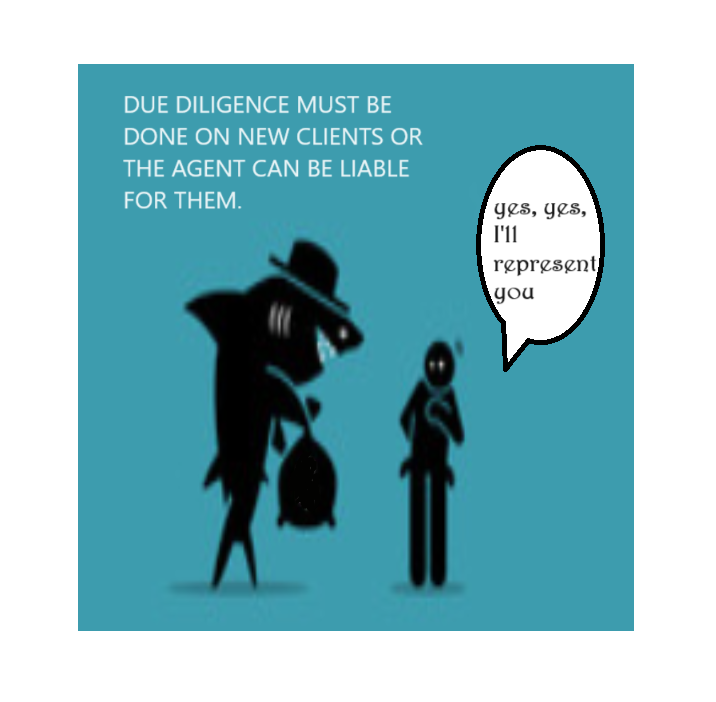Stanley Yeung v Hong Kong and Shanghai Bank [1981] AC 787
Citation: Stanley Yeung v Hong Kong and Shanghai Bank [1981] AC 787
Rule of thumb: Do agent have a duty to do due diligence on their clients? Yes, and if they represent a fraudulent client without doing this first then the agent can be sued.
Judgment:
Agents have a duty to carry out reasonable due diligence to find out about the principals who instruct them, as well as do reasonable due diligence on the instructions they receive from their principal. Where an agent is aware, or should be aware, that their principal is instructing them to act in a way that breaks the law, then the agent can be liable for any losses caused, particularly if the original principal then cannot be located. The facts of this case were that share certificates were forged and provided to stock brokers who were instructed to sell these shares to an investment bank in return for the value of the shares. It of course eventually turned out that the share certificates were forged and the true shareholder sought the value/return of the shares. The Court held that the stock broker should be liable for the losses caused as they have a duty to do due diligence on the documentation received, and in this case it was not done properly, ‘It is not the case that, if a principal is liable, his agent cannot be. The true principle of the law is that a person is liable for his engagements (as for his torts) even though he is acting for another, unless he can show that by the law of agency he is to be held to have expressly or impliedly negatived his personal liability. But, upon the view of the letters, which the Courts below accepted and this Board believes to be correct, the brokers cannot avoid personal responsibility for whatever consequences the law attaches to the making of the request and the bank’s compliance with it. It was their request – even though made on Mr Wong’s [the transferee’s] behalf... For these reasons their Lordships find themselves in agreement with the Court of Appeal in holding that there was in the circumstances of this request a promise by the stockbroker to indemnify the bank if, by acting on the request, it caused actionable injury or damage to a third party. The promise was accepted by the bank acting on the request and became a contractual indemnity,’ Lord Scarman

Warning: This is not professional legal advice. This is not professional legal education advice. Please obtain professional guidance before embarking on any legal course of action. This is just an interpretation of a Judgment by persons of legal insight & varying levels of legal specialism, experience & expertise. Please read the Judgment yourself and form your own interpretation of it with professional assistance.

